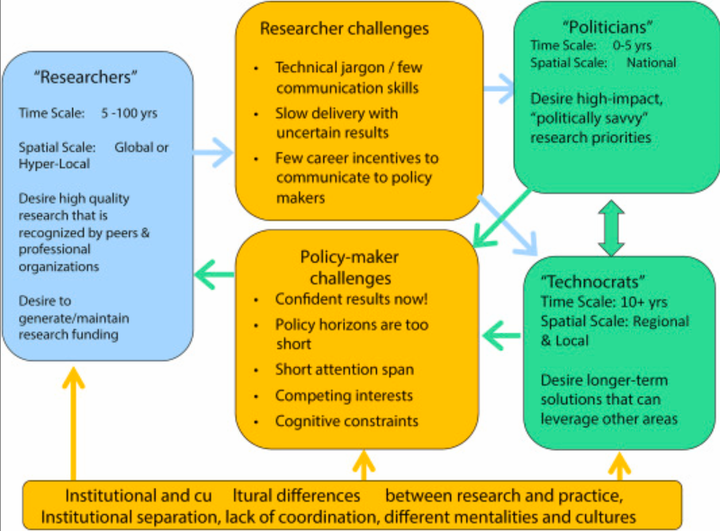Filling knowledge gaps to strengthen livestock policies in low-income countries
 Image credit: PLoS ONE
Image credit: PLoS ONEAbstract
Evidence-based livestock policies are needed to raise rural incomes and improve dietary diversity in low-income countries where the majority of populations depend on livestock for their livelihoods. Yet these contexts exhibit unique challenges on both information supply and demand sides, which widen the gaps between research and policy-making. This paper reviews the constraints to evidence-based policy-making and identifies knowledge areas most suitable for building a persuasive narrative that capture the attention of busy decision-makers. These promising spaces for production of new data and methods focus on livestock contribution to the economy, trade, food security and resilience. The examples discussed show the potential of current and future research for leveraging synergistic interests from multiple actors and improving livestock policy interventions.